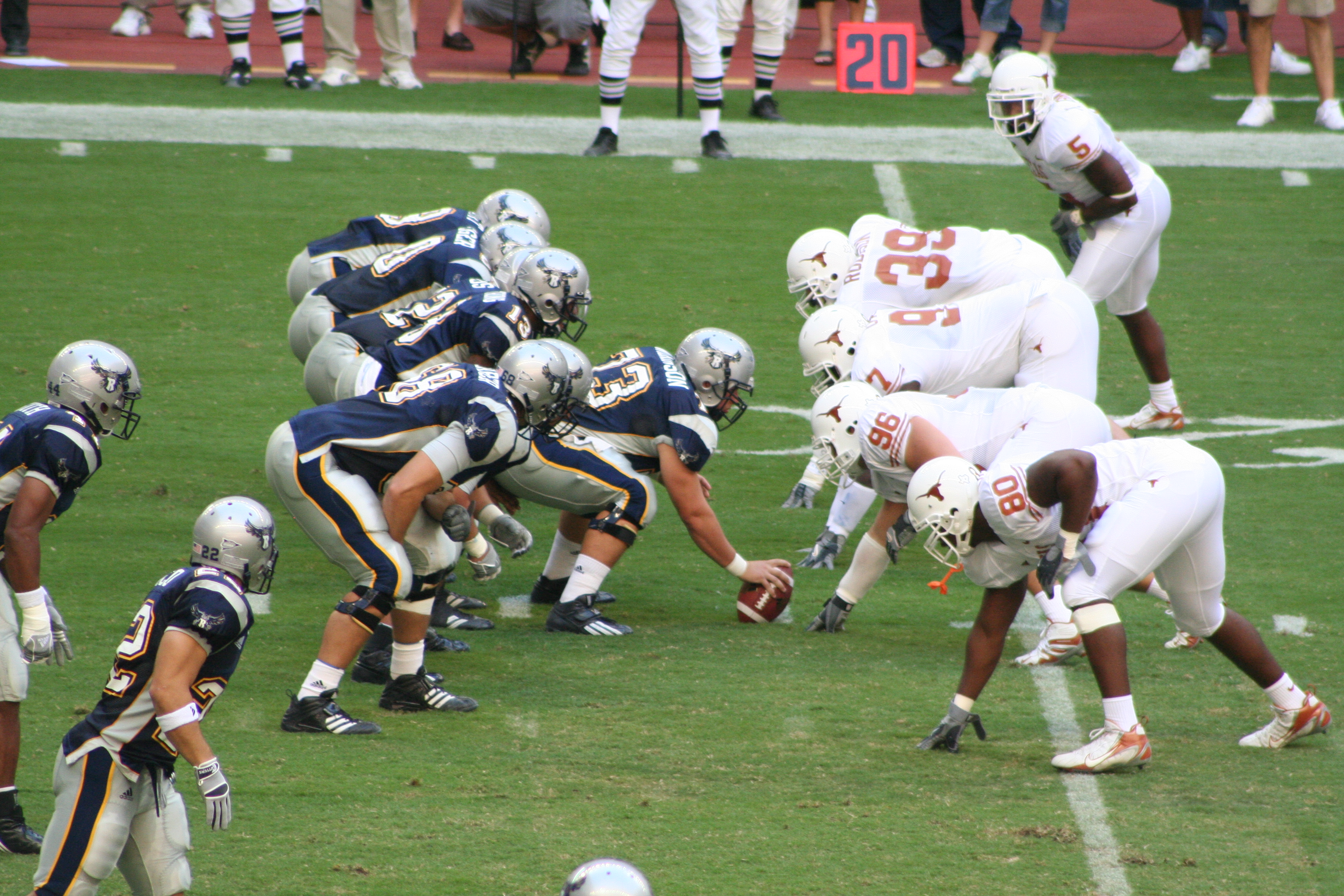The Case Against College Sports
Athletics and academics are separate spheres. Why do people who want to be athletes have to go to college?
By Tim Philbin, College of the Holy Cross
Imagine for a moment that an intelligent species of alien arrived on earth and was observing American society.
Of all the various institutions they would have to assess, perhaps the most difficult to understand would be American colleges.
When you think about it, college is a rather baffling conglomeration of seemingly unrelated things. In an American college, if one wants to become a musician, there is an avenue for that. If one wants to become a biologist, there is an avenue for that. If one wants to become an engineer, there is an avenue for that. If one wants to become a businessman, there is an avenue for that. The institution as a whole is defined by its lack of a unifying purpose at every turn (the topic of another article for another day), but nowhere is this effect more apparent than in college sports.

Theoretically, college is supposed to develop students’ minds; that much at least would seem uncontroversial. Given this rather obvious fact, why, dare I ask, are there college sports at all?
This is not to say that I am against sports in general; I played baseball all four years of high school and I’m a rather fanatical fan of the Boston Red Sox. But why are they part of college life? Let’s take a look at what the NCAA has to say about that.
According to Mark Emmert, the President of the NCAA, the most important part of college athletics is the education athletes receive. “We want to make sure they get degrees, and that they really have the education that sets them up for life. That’s the game-changer here. Not the 3 to 4 percent who make it to the NBA,” Emmert said.
The notion that athletes are rewarded by receiving an education is one that Emmert hammers home time and time again, but it bears no scrutiny. As much as the NCAA would have you believe that they prioritize students’ education over athletics, the experience of students time and time again proves this notion false. To see what I mean, watch this video of Seattle Seahawks cornerback Richard Sherman describing the schedule of a college athlete. Most days, college athletes are working harder on their sport than they are on academics, which would explain the lower graduation rate among athletes when compared to non-athletes.
In fact, some schools have even instituted so-called “paper classes,” fake classes designed to boost athletes’ GPA in order to allow them to focus on their sport. Ex-University of North Carolina basketball player Rashad McCant, who admitted to taking paper classes while in college, said, “As an athlete, we weren’t really there for an education. We were there to enhance our athletic abilities. As an athlete you get a scholarship to the university to play basketball and they didn’t steer us in the direction of educational enhancement.” So much for “We want to make sure they get degrees.”
If the NCAA is not committed to “The pursuit of excellence in both academics and athletics,” as it states on its website, then what is it really committed to? The answer is both simple and obvious: money.
Colleges have a lot to gain financially from college sports: merchandise, tickets, new students, etc. There’s a reason that of the top ten largest sports stadiums in the world, eight are owned by colleges.
College athletics can be a very profitable investment: to give a quick example, Alabama’s football program turned a $97 million dollar profit last year. Moreover, the individuals involved also have a vested financial interest in preserving college athletics as they are.
In 2012 the average division I football coach made $1.64 million, and at the top of the pile, Alabama coach Nick Saban made $7 million last year. Oh, and let’s not forget Mark Emmert, the president of the NCAA who claimed that student athletes are paid in an education; he made $1.7 million in the 2012-2013 fiscal year. College sports is a massive industry, and these men stand to lose quite a bit of cash if it were to evaporate.
For all the reasons I have described in this article, many have argued that college athletes should be paid as employees so that they can share in some of the massive profit generated by their labor. In fact, Kareem Abdul-Jabbar, a former college basketball player and a member of the NBA Hall of Fame, has made this very argument. While on CNN discussing this issue, he said, “It’s incredible how much money is being made. The president of the NCAA makes $1.7 million a year, yet the people who are performing and generating this cash do not get to participate in any way.” Jabbar has a point, but I would go one step further. I would propose that colleges do away with their athletic departments altogether.
As I established earlier, colleges are by their very nature supposed to educate students. That is their one and only purpose on earth. So then the necessary question becomes what do college sports do to advance the education of their students? Based on the panoply of evidence that I have presented, it would seem that college sports do nothing at all to advance the education of students; in fact, it is actually detrimental to it.
Student athletes graduate having given four years of hard labor in return for what is in many cases a joke of an education.
That simply doesn’t make any sense. Athletics and academics are separate spheres. If you want to prepare for a career in business you go to business school. If you want to be a musician you go to a conservatory. Why do people who want to be athletes go to college?
There must be a better way to do this. I’m not sure exactly what it is; it might mean establishing separate institutions where athletes go to hone their skills, or perhaps it might mean all professional sports adopting the MLB model whereby teams draft most players directly out of high school (only 4.3 percent of professional baseball players have a bachelor’s degree compared to 41 percent in the NFL). No matter what, the way the system is right now cannot persist. It is exploitative, unethical and impermissible, and therefore, I cannot conscientiously support it.

















